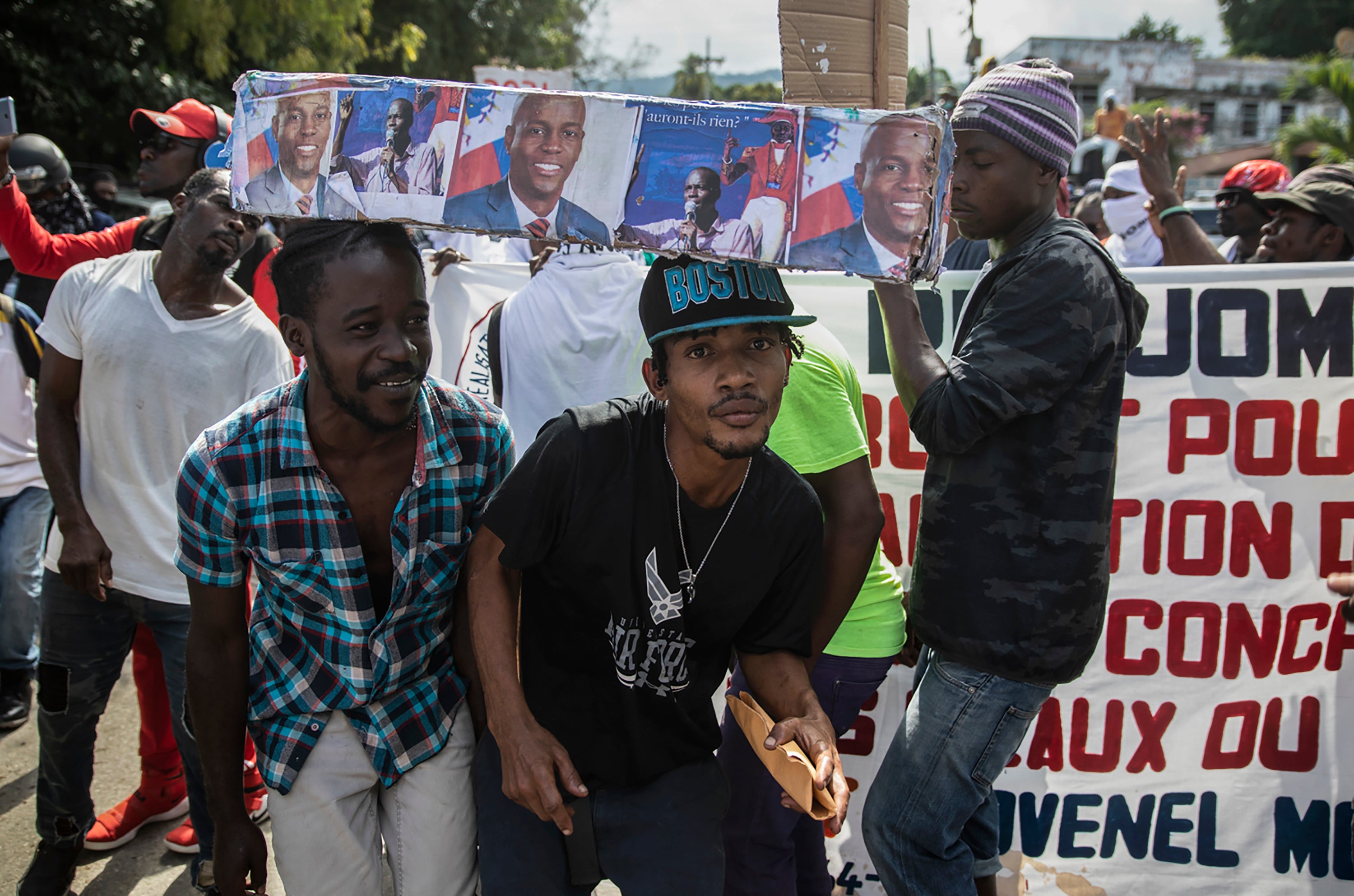Haiti braces for further instability amid grim anniversary
Schools and businesses across Haiti have shuttered their doors and large numbers of police are patrolling the streets as the country braced for a grim anniversary

Schools and businesses across Haiti shuttered their doors on Monday and large numbers of police patrolled the streets as the country braced for a grim anniversary.
Monday marked not only seven months since President Jovenel Moïse was slain at his private residence but also the end of his term, with opponents demanding that Prime Minister Ariel Henry step down, arguing that his administration is unconstitutional.
“We’re in a situation where fear is taking over peace,” Bocchit Edmond, Haiti’s ambassador to the U.S., told The Associated Press. “Our country cannot continue to live that way.”
Thousands of people opted to stay home on Monday, afraid that even greater violence would erupt as Haiti’s political instability deepens, kidnappings spike and gangs grow more powerful amid a crumbling economy. Lionel Fortuné, a 33-year-old law student, was among the few who ventured outside and waited a long time for a public bus to materialize on the empty streets.
“This country has totally deteriorated,” he said. “You don’t know who you can count on, who you can trust to lead the country to the right path.”
Henry, the prime minister, has promised to create a provisional electoral council soon to pave the way for elections that he says will occur by the end of this year as his administration tries to improve security conditions.
“The heinous assassination of President Jovenel Moïse last year has brought our country to the brink of chaos, and our institutions are completely dysfunctional,” he wrote in an op-ed published Sunday by The Miami Herald. “My mission and that of the government over which I preside is to get our country back on track to achieve democracy as soon as possible.”
Haiti currently has only 10 elected officials since it failed to hold legislative elections in October 2019 amid political gridlock and massive protests, with Moïse ruling by decree for more than a year before was killed. Since then, numerous opponents have challenged Henry and nominated their own leaders, moves that the prime minister has not recognized.
“A president cannot be named, appointed or selected by any group of people or organization,” Henry wrote. “Elections are the only way forward.”
Bocchit echoed those thoughts, saying that Henry did not make himself prime minister but rather was chosen by a legitimate and democratically elected president. He said the process of choosing an electoral council was very well advanced and called on opponents to dialogue with Henry and work together, adding that he remains optimistic elections will be held.
“My only fear is to see my country not moving forward,” Bocchit said.
He dismissed accusations that Henry is not considered a legitimate leader given that Haiti’s chief public prosecutor, whom Henry has since fired, noted that the prime minister spoke with one of the main suspects in the presidential slaying hours after it occurred. Henry has said he received multiple calls that day and doesn’t remember all of them.
“It’s an ongoing investigation,” Bocchit said. “Let us leave (this to) the justice system.”
One of the most high-profile groups that oppose Henry, the Montana Accord, named after the hotel where it was signed, has proposed a two-year transitional period to allow Haiti time to create a safer environment for voters. The group, made up of thousands of supporters including prominent politicians and civil society leaders, recently nominated as its leader Fritz Jean, former governor of the Bank of the Republic of Haiti.
In a speech on Saturday, Jean said he plans to reach out to more groups and political parties to find solutions to Haiti's issues and noted that violence is not the road to democracy.
As political figures keep vying to be Haiti’s new leader, Fortuné, the law student, lamented the spike in prices of basic food staples and accused the government of not doing anything to improve people’s lives: “The economy has hit rock bottom. It can’t go farther than it has. No one can really survive.”
___
Coto reported from San Juan Puerto Rico
Bookmark popover
Removed from bookmarks